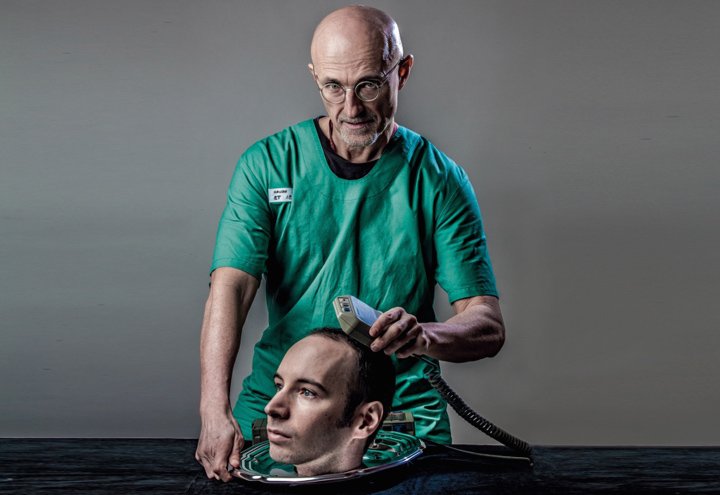5 Reasons Why Human Head Transplants May Not Be Possible in 2017

For the last couple of years, an Italian surgeon and scientist, Dr. Sergio Canavero, has claimed he will be the first to perform the world’s first human head transplant, and he feels 2017 will be the year when his dream becomes a reality. The first head transplant took place in 1970 when surgeons “successfully” went to work on a monkey. However, the monkey’s life was short-lived as it only went on to live for another 8 days after the surgery took place. Of course, that isn’t a bad result considering it was 1970 and medical technology has grown a lot since, but there are multiple reasons why a human head transplant may not be possible this year.
1. Is It an Ethical Thing to Do?
One of the obvious obstacles in the way of human head transplants is if it’s an ethical operation to complete. Many people around the world believe it to be unethical and some people even believe it could be worse than death.
2. Further Problems Could Arise
Attaching the head to the new body is one thing, but making it all work is quite another. Some scientists feel it could cause further problems to do with the brain’s memory, whereas other scientists feel joining the brain to the spinal cord is the biggest problem. With the health technology available it’s obviously a possible feat, but the main problem is knowing whether it’s going to work or not.
3. Induced Comas Can Cause Other Problems
If the head transplant was a success the patient would have to be put into an induced coma for up to four weeks for the spinal cords to fuse together. This is a major issue because not only do doctors put patients in an induced coma as a final option to “repair” them but an induced coma can also cause several other problems such as blood clots and possible infections.
4. Rules & Regulations
If Canavero was to perform the first human head transplant he would have to do it in a country where regulations would permit the procedure. While there are many laws against this type of operation because of the risks involved, there are still countries that would allow it. Regardless of that, Canavero would also have to work in line with other rules and regulations to ensure he doesn’t perform the surgery illegally, and that could prove to be difficult with several health laws in place throughout the world. Professionals that have a health law degree and a masters in health law will already know the strict policies in place in several countries.
5. Will the Spinal Cord and Brain Work Together?
The main issue is that there is no guarantee the brain on a different body will be able to work in conjunction with the spinal cord. This means if the procedure did work, the patient could be paralyzed and there will be nothing further anyone can do.
It’s obvious the technology is there to make the surgery possible, but there are no guarantees that the operation will be a success because of the many factors involved. By studying for an online health law degree you’ll be able to understand the laws and regulations when it comes to surgery like this.






